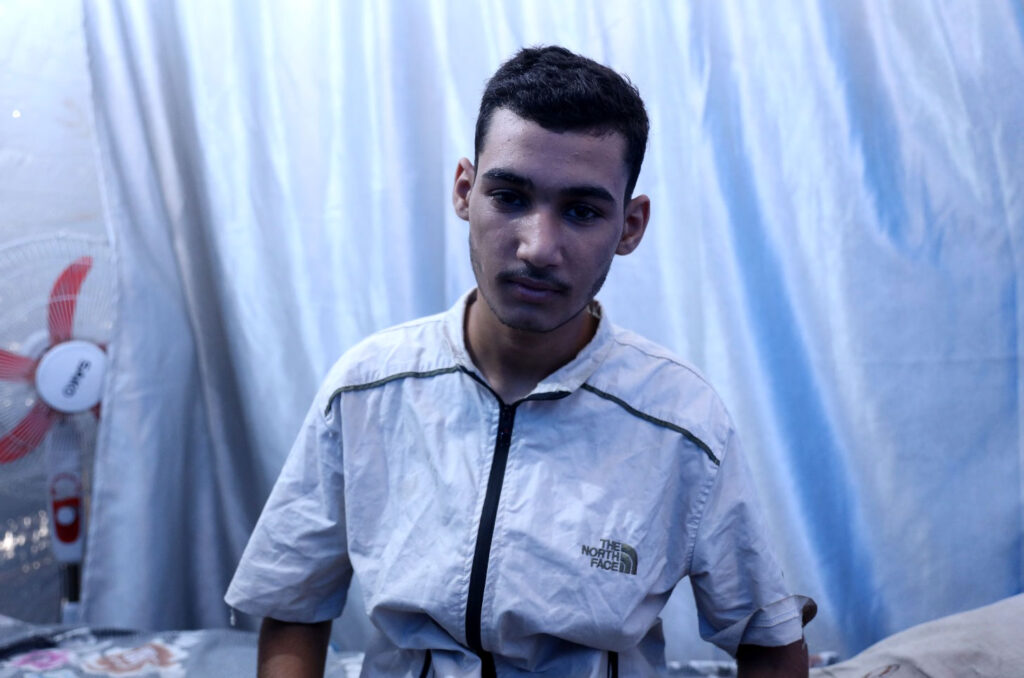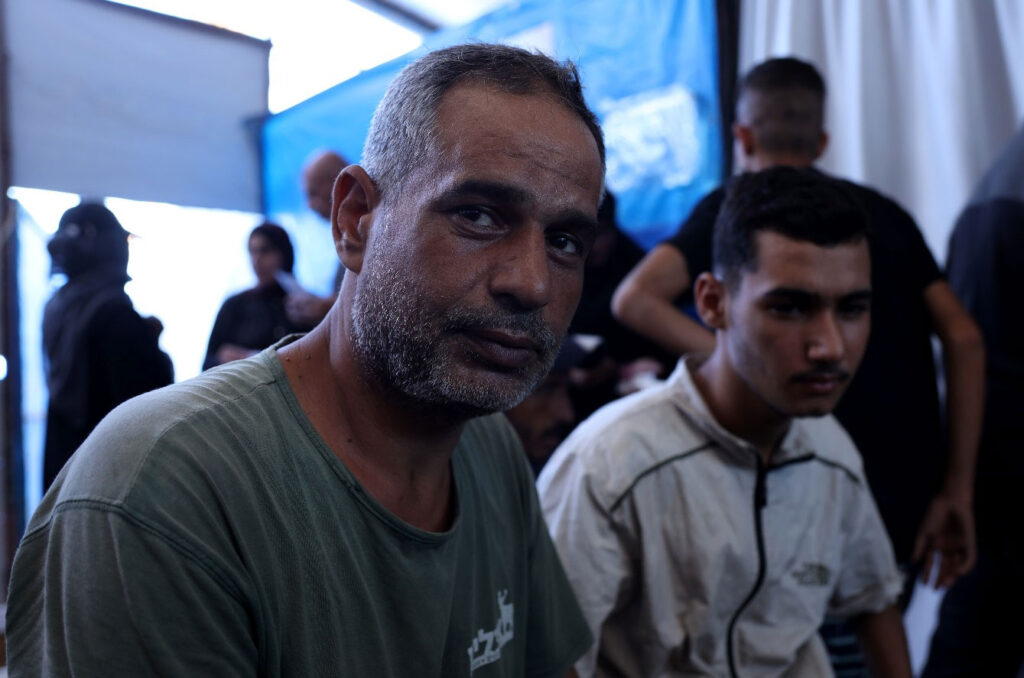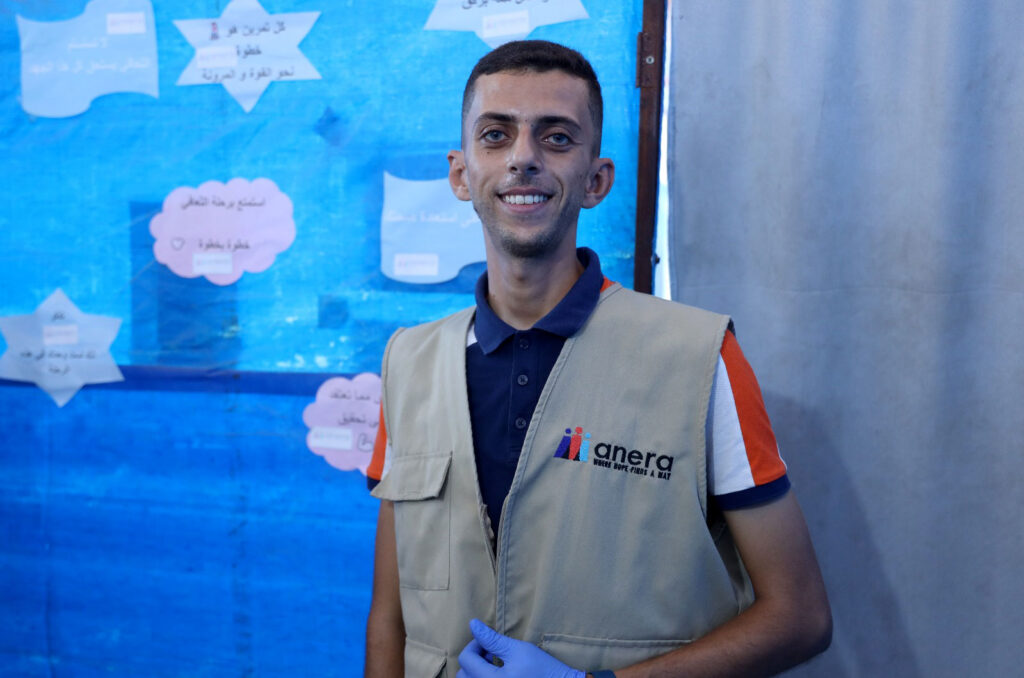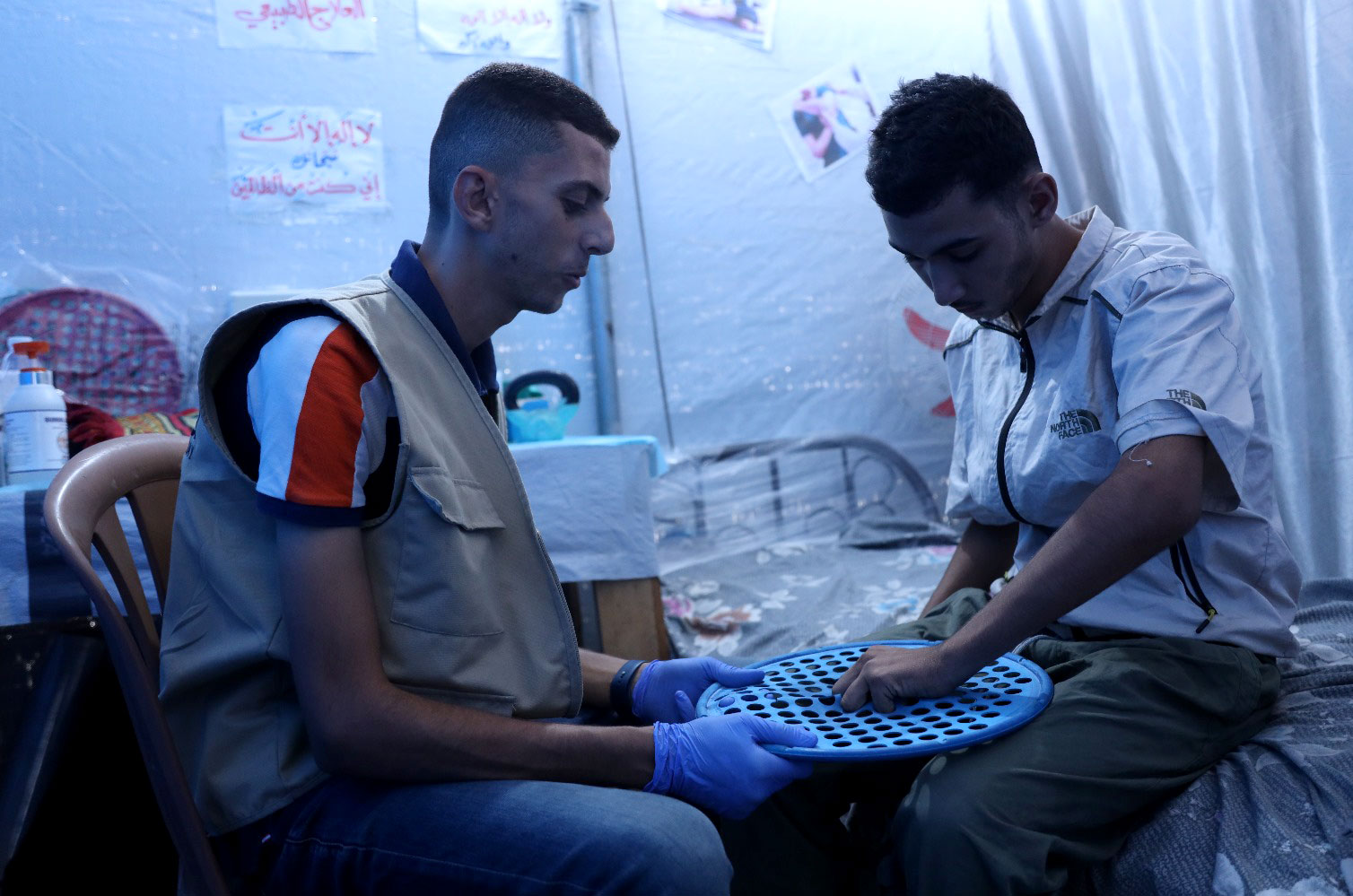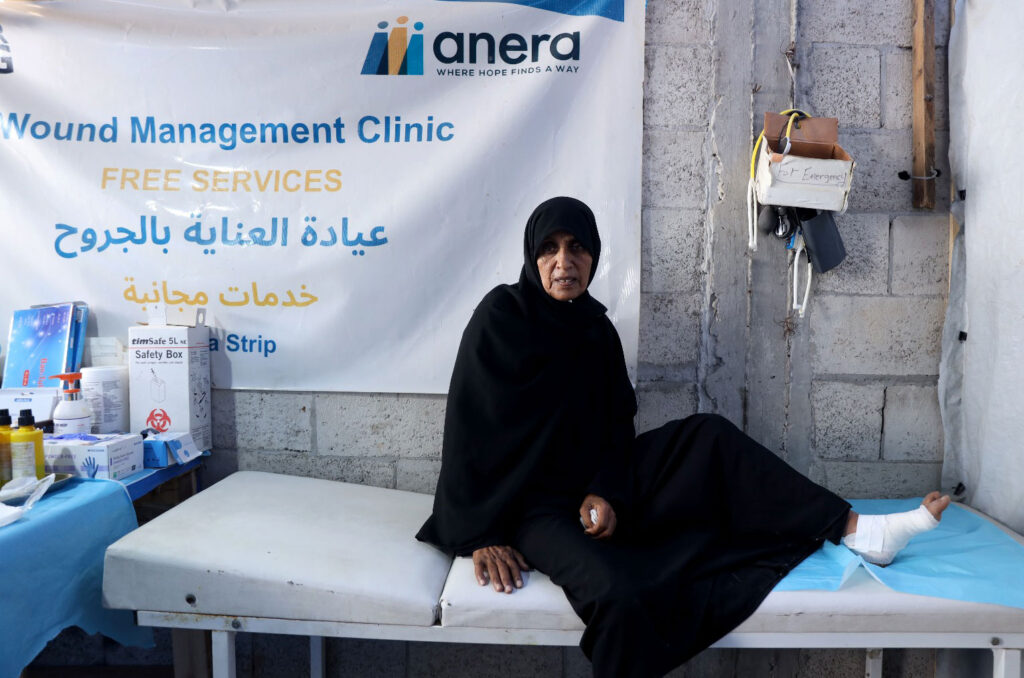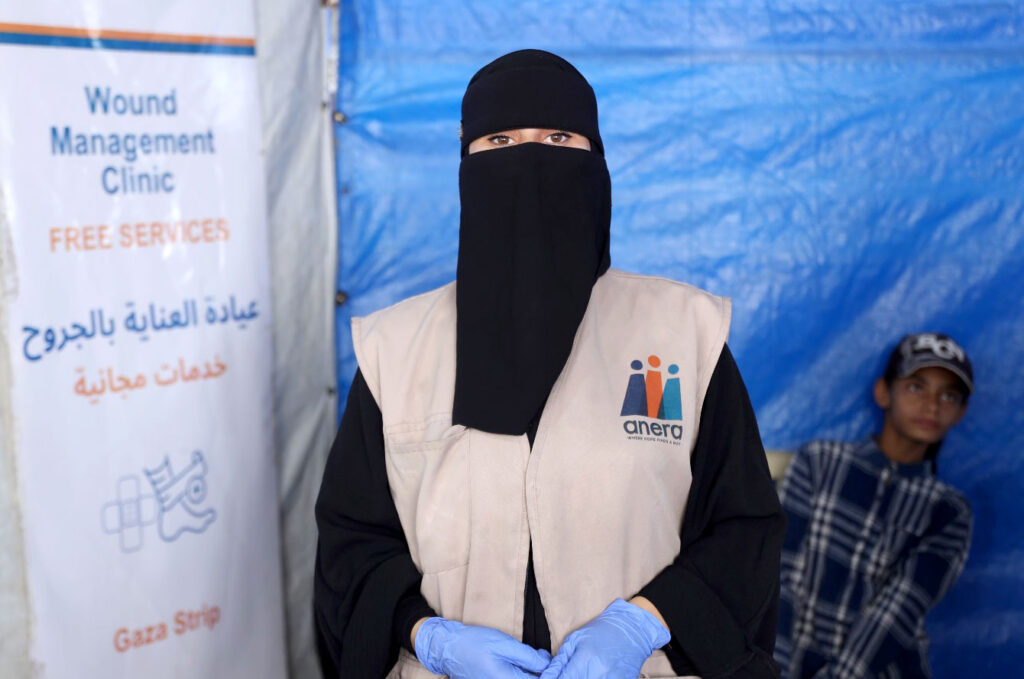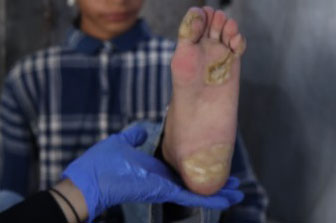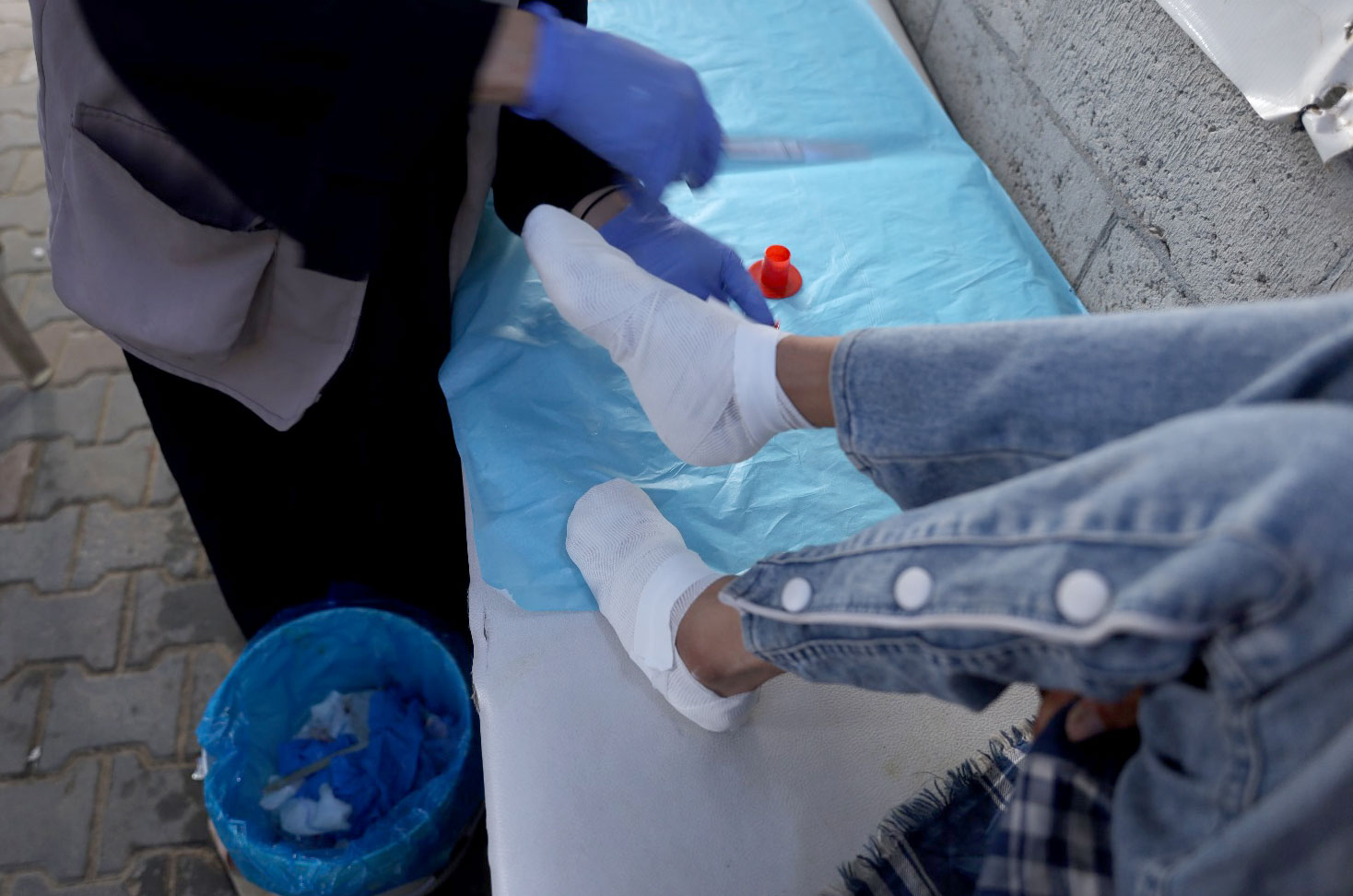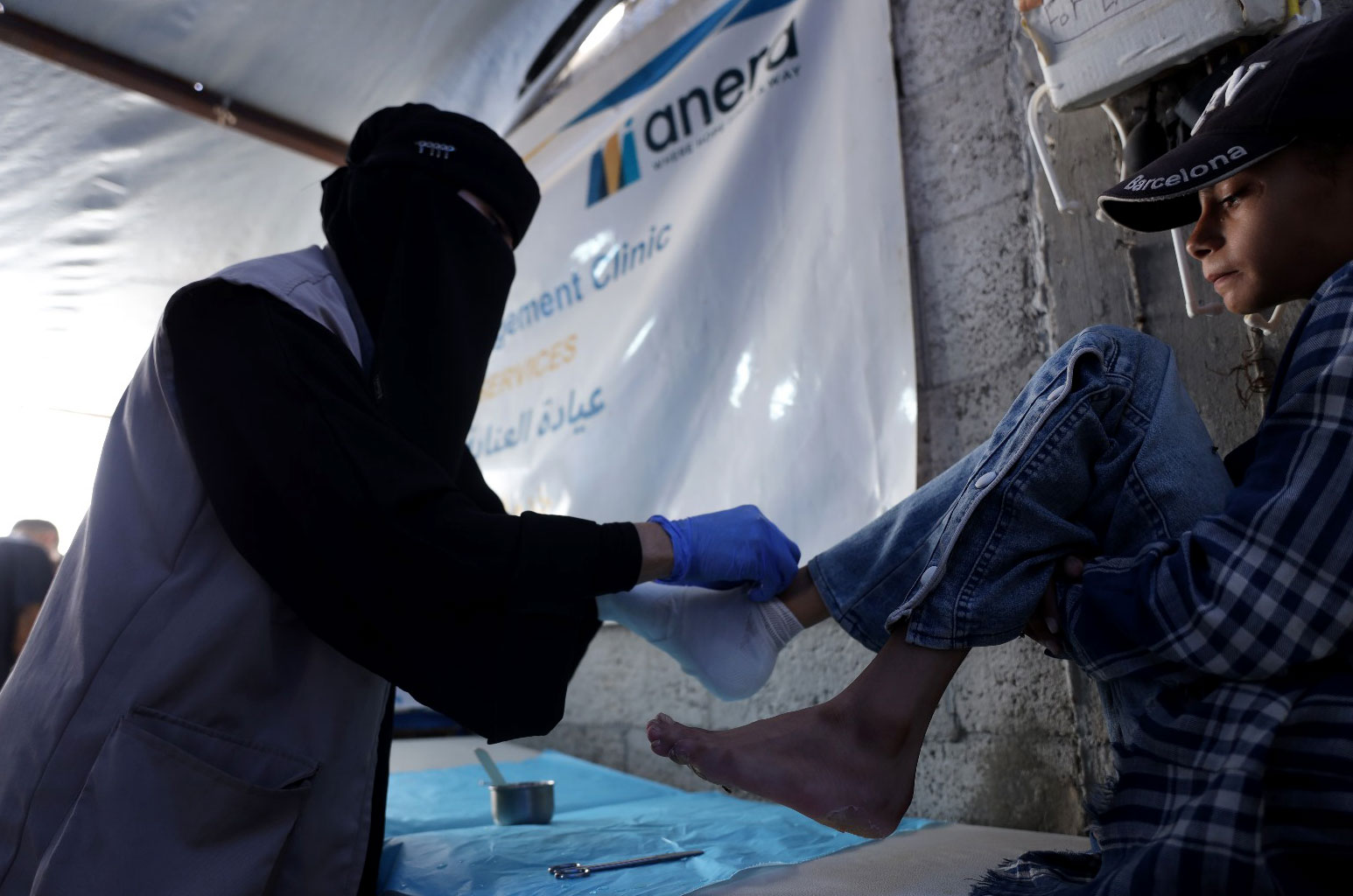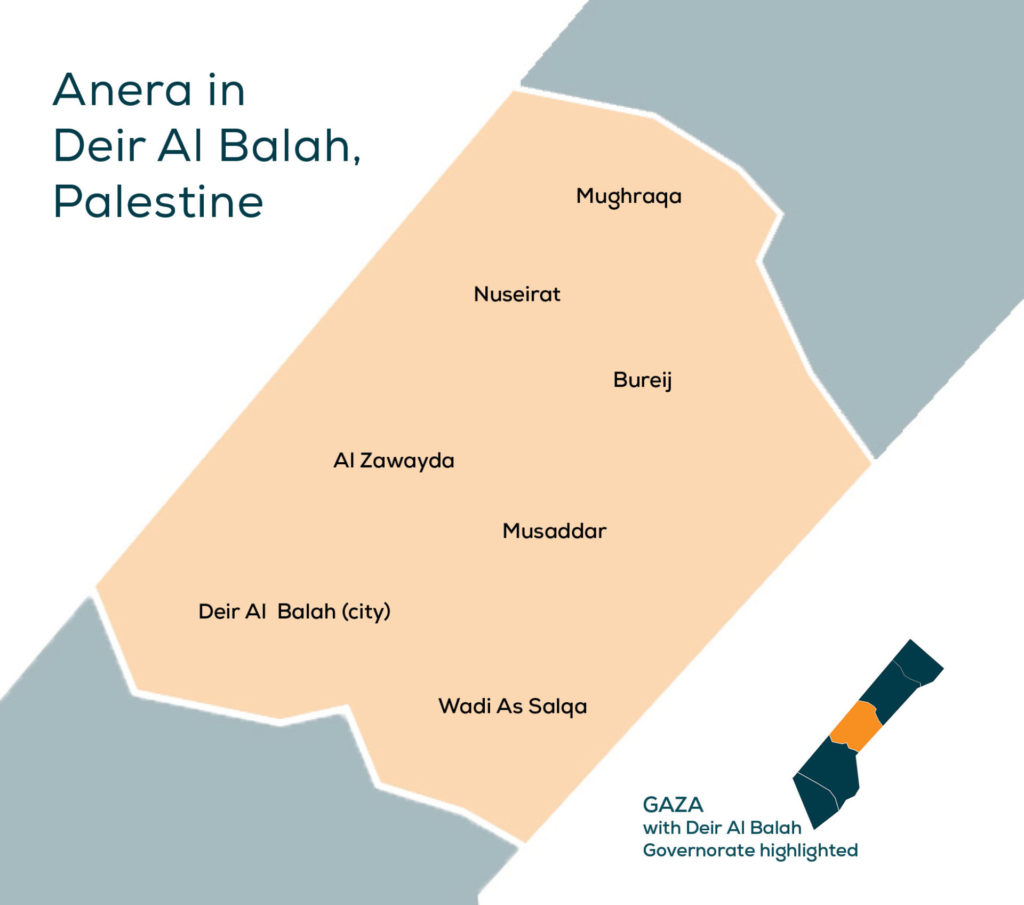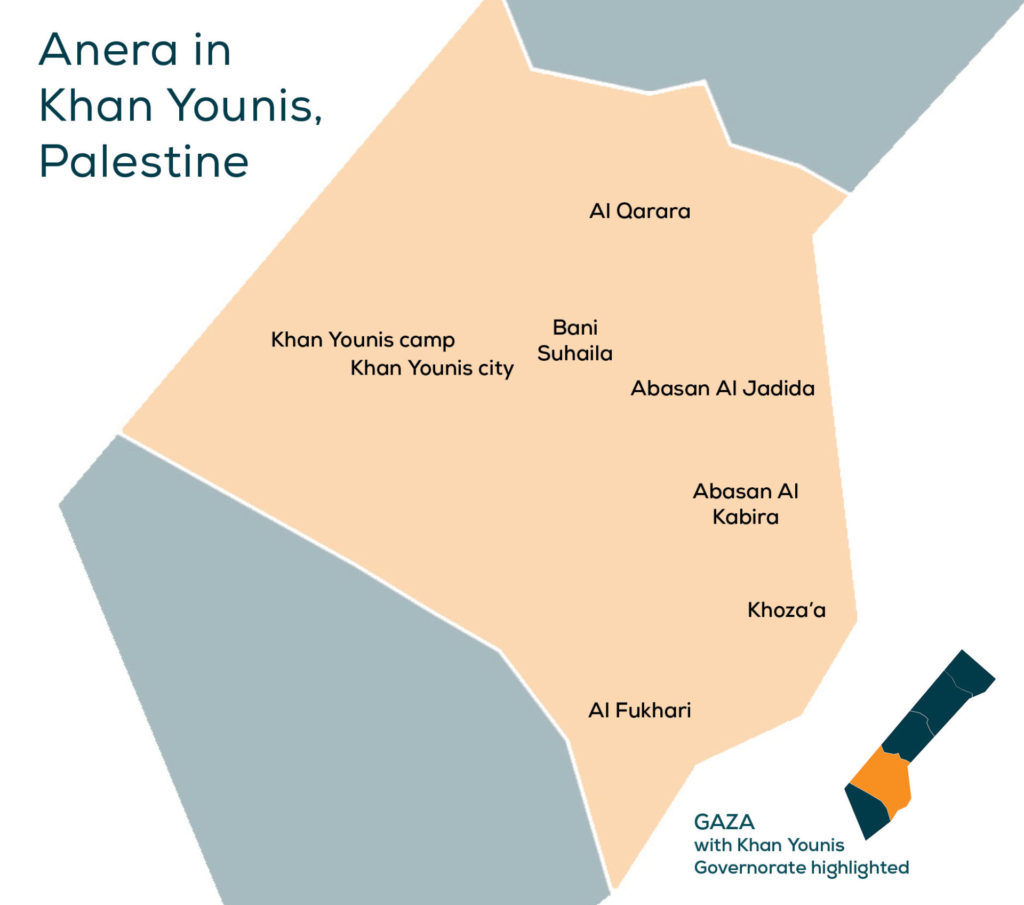Sep, 2025
Three stories from Anera's field primary healthcare centers as our clinics continue caring for patients in Deir Al Balah and Khan Younis
From Injury to Recovery
Amid the ongoing war in Gaza, stories of survival bring a glimmer of hope to people’s hearts. One such story is that of Mohammed, a 16-year-old boy who sustained a serious head injury while trying to collect humanitarian aid from a Gaza Humanitarian Foundation distribution center.
Mohammed had gone there to collect food for his displaced family, who, like so many in Gaza, were struggling with hunger.
Originally from Beit Lahia in the north of Gaza, he and his family had already endured the hardships of displacement and insecurity.
Three months ago, he set out with a friend to retrieve some aid. He returned carried on the shoulders of others with a grave brain injury.
The injury left him bedridden, with paralysis in his left arm and leg, as well as severe difficulties with speech. The physical and emotional toll was devastating for him and his family.
Mohammed recalls the moment of the incident.
“I went with my friend to the Shakoush area in Rafah to get aid from the American center. Thousands of people were waiting for the aid. The tank was firing at us directly,” he says.
“Suddenly, shrapnel hit me in the back of the head. After that, I don’t remember anything.
"I woke up in the hospital, barely conscious.”


“Suddenly, shrapnel hit me in the back of the head. After that, I don’t remember anything."
For his father, Mohammed, 44, the ordeal was a nightmare.
“Despite the hunger and starvation we suffered during displacement, I was strict in forbidding my five children from going to collect aid because of how dangerous it is and how people waiting for it are targeted,” he says.
“But Mohammed went without telling me, because he saw how we were dying of hunger every day.”


“Thanks to God, and then thanks to the doctor, I started walking again.”
“We got a call from the hospital and rushed there to find him with the wound to his head. It was a huge shock, especially when we realized he had lost movement and couldn’t speak properly,” the father says.
At our clinic in Deir Al Balah, Mohammed received specialized care. Over time, his condition began to improve.
“Now, thank God, with follow-ups and treatment, he has improved about 70%. Even his spirit is better,” Mohammed senior says.
Mohammed junior credits the doctor and physiotherapy team for his progress.
“Thanks to God, and then thanks to the doctor, I started walking again. Everything is better now, God willing.”


"It was a huge shock, especially when we realized he had lost movement and couldn’t speak properly.”
His father adds words of gratitude for the Anera team, highlighting their sacrifices.
“Most of [the clinic staff], if not all, are displaced themselves. They leave their homes and children and come to work with dignity. God bless them.”
Hamza Al-Jammal, the physiotherapist who oversaw Mohammed’s care, explains the recovery journey.
“Mohammed had a head injury that caused weakness on his right side. When we first started, he could barely move his arm or leg. After six weeks of therapy, he improved by 70–80%, and I am still following up with him to reach full recovery.”
Al-Jammal stresses the challenges of working in wartime conditions. “We can provide services, but our capacity is limited. Officially, our hours are 8 to 3, but the patient load is huge.”
“We also lack advanced equipment. Everything we do is manual therapy. With better devices, results would be even greater. Still, despite limited resources, the progress has been excellent.”


"When we first started, he could barely move his arm or leg."
For him, the treatment was not only physical but also psychological.
“I always try to encourage the patient," the physician says, "to make him feel he is fine no matter his condition. Psychological support is a very important part of therapy.”
This combination of medical care, compassion, and resilience has given Mohammed a second chance. His story is proof of the difference these efforts can make, restoring not just movement and health, but also hope for the future.
“Thank God, I feel better now. I can walk and move normally again. I’m deeply thankful to the entire Anera clinic team, especially Dr. Hamza,” Mohammed says.


"Psychological support is a very important part of therapy.”
Saving a Leg and Restoring Hope in Khan Younis
From Anera’s chronic illnesses clinic in Khan Younis comes a remarkable story that highlights the life-altering importance of humanitarian medical services amid the war.
Sixty-year-old Najah came to the clinic carrying a heavy burden: her doctor had told her that her leg could not be saved and would need to be amputated due to complications from diabetes.
Thanks to early intervention and dedicated wound care at Anera’s clinic, Najah’s leg was spared. Today, she is able to walk again, almost normally.
Najah had been living with diabetes complications for over 25 years, but her condition worsened during the two years of war.
“It started with an infection in my toe and then the sole of my foot. That led to the amputation of the toe, and then the infection spread to the rest of the foot,” she says.
Displacement from her home in Rafah to the Mawasi area of Khan Younis, combined with food shortages and the crushing stress of war, all contributed to her deteriorating health.
“The hard life and the lack of proper food and drink — all of that affected my condition,” she says.
When her doctor told her that amputation was inevitable, she was crushed — overwhelmed with fear and grief. Fortunately, an acquaintance suggested Najah try Anera’s clinic.
“I went the very next day with my son’s help. After the examination, the nurse reassured me and encouraged me to come daily for wound care, telling me my foot could heal,” Najah says.
“I had already heard from other displaced people around me that Anera’s clinic was very good, so I decided to try.”
The nurse who oversaw her care, Halima Al-Ra’i, played a central role in saving Najah’s leg.
She not only provided the medical treatment but closely supervised every detail of the daily care: cleaning the wound, monitoring fluid buildup, dressing the injury, and evaluating her progress weekly with the surgeon.
“Najah's leg was at high risk of amputation," Al-Ra’i says. "I felt such sympathy for her and decided to do everything I could to prevent it. I asked her to come every day, and I cleaned the wound, used antibiotics and ointments, dressed it carefully, and made sure she kept it dry.”
For Al-Ra’i, this case was deeply personal and emotional. Her own mother, around Najah’s age, had lost her leg after a severe injury caused by Israeli shelling near their home.
“When I saw Najah, I remembered my mother, who now suffers from the pain of amputation and the inability to walk. I promised myself not to let Najah go through the same tragedy.”
Despite the challenges of working in wartime, with bombardments, overcrowded clinics, and limited resources, Halima was determined.
“At that time, the bombing was constant, and new war injuries came in every day. We had to make time for wound care for the wounded, but I still made sure Najah received her treatment without interruption.”
After nearly two months of daily care, Najah’s condition improved dramatically. She regained strength in her leg and was able to walk again.


"Resources are limited, and not all medicines or supplies are available. But we work with what we have and achieve the best results we can."
“I can’t thank the nurse and the Anera clinic staff enough,” Najah says. “I wish them all success from the bottom of my heart.”
For Al-Ra’i, the success was also proof of the power of persistence, compassion, and teamwork.
“At Anera, resources are limited, and not all medicines or supplies are available. But we work with what we have and achieve the best results we can. With God’s help and collective effort, we succeed.”
She stresses that physical healing alone is not enough. “Psychological support is essential. I always reassure patients that they will recover, that they can walk again. It gives them the strength to continue treatment.”
Najah’s story underscores the importance of early intervention and consistent care, especially for patients with chronic illnesses like diabetes.
With timely treatment, her leg was saved, and her mobility restored, a success that might not have been possible without Anera’s clinic.
At her final visit to the clinic in Khan Younis, Najah expressed deep gratitude. “Truly, I cannot thank everyone enough: the nurse, the doctor, Anera, and its donors," she says. "May God fill your lives with happiness and success.”
A Journey of Hope and Healing in Khan Younis
When 14-year-old Doha first visited Anera’s wound care clinic in Khan Younis, she took slow, painful steps, leaning on her mother for support. For years, she lived with chronic infections in her foot that nearly cost her the ability to walk.
Her mother, Faiz, recalls how the suffering began in childhood.
“Doha would never sleep at night because of the pain. It all started with something minor — a thorn in her foot.
"But then the infection spread deep inside the foot. We tried different hospitals and clinics, but nothing helped.”
Over the years, Doha underwent many painful procedures to clean out infections and remove dead tissue, but without lasting improvement.
When the war began, the family was displaced from their home in Rafah to a tent in the Mawasi area of Khan Younis, making her already fragile condition far worse.
“Our financial situation was difficult even before the war,” her mother says. “Now it’s unbearable. We couldn’t afford the ointments or pain medicine she needed. And her condition was getting worse day by day.”
By chance, her mother brought her to Anera’s clinic, where nurse Halima Al-Rai’ immediately recognized how severe the case was. She began daily wound care and worked with doctors to treat the infection with targeted antibiotics.
“At first, she came in just for a normal dressing,” Al-Rai’ recalls. “But I saw her condition wasn’t ordinary. I asked a dermatologist to check, and it turned out she had infections and layers of dead cells built up over years.
“We had to see her every day. It was very hard because she was in such pain.”
The team carried out lab tests, took swabs, and applied the right combination of antibiotics and cell-regenerating treatments — all with one goal: to save her foot from amputation.
“Little by little, she improved,” Al-Rai’ says. “At the beginning, her family would come in crying. But I worked closely with Doha, explaining each step, encouraging her to be patient. Day by day, she could walk a little more.”


“Her healing gives us hope to keep going, even in these very difficult times.”
Doha’s mother noticed the difference. “At first, her foot had a terrible smell. Now that’s gone. She used to barely walk, but today she’s moving on her own. Every week we see her getting stronger. Thank God.”
For Al-Rai’, Doha's progress provided motivation.
“I used to sit with her, calm her down, and tell her we’d get through this together.
"It wasn’t easy, the overcrowding, and so many patients, but her progress kept us going.”
Through daily care, strict monitoring, and constant encouragement, they gave Doha back her ability to walk.
“Now she can walk almost normally,” Al-Rai’ says. “Her healing gives us hope to keep going, even in these very difficult times.”
Today, Doha is regaining her independence, as she takes confident steps toward recovery and toward freedom from pain. Her family is deeply grateful for the care she received.
“We thank all the staff at Anera’s clinic: the doctors and nurses who never gave up on her," Doha's mother says.
"After four months of follow-up, Doha is so much better. We pray she continues to heal.”



